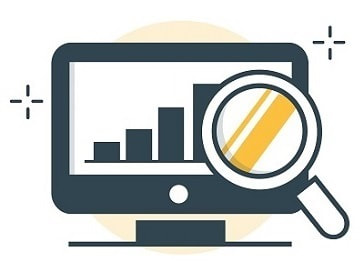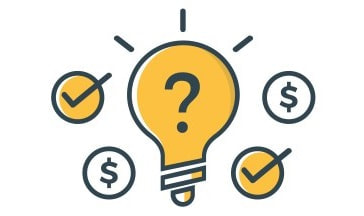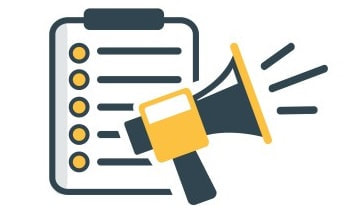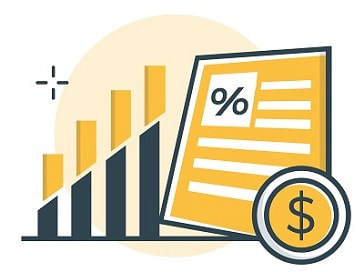How to Manage Higher Mortgage Payments
The era of cheap money is over. With New Zealanders facing much higher interest rates as cheap fixed deals end, our guide explains everything you need to know to make ongoing mortgage costs affordable.
Updated 9 August 2023
Summary:
Our guide covers:
Related guides:
Know This First: If you're concerned about the impact of rising interest rates, there are many steps you can take to position yourself for this scenario. Some strategies to consider include the following:
- New Zealand has experienced a period of low-interest rates since 2008. As a result, mortgage rates have been steadily falling from 2008 to 2020.
- This situation has meant that cheap mortgage rates and rising house prices are the only outcomes many first-home buyers have ever known.
- However, recent economic indicators suggest that 7%+ mortgage rates are on the long-term horizon.
- This scenario can be a concerning prospect for many New Zealanders, particularly those who have taken out a mortgage or are considering taking one out shortly. For many, rising interest rates will be a financial shock. This Nelson story in early 2023 shows the dangers of big mortgages coming off cheap rates and crippling home owners financially.
- Our guide explores the potential impact of rising interest rates and increased mortgage repayments, and provides tips and strategies to mitigate these impacts.We also list the top facts you need to know and frequently asked questions.
Our guide covers:
- Who do Rising Interest Rates Affect?
- What Can New Zealanders do to Position Themselves for Rising Mortgage Repayments?
- Must-Know Facts about Rising Interest Rates and Increasing Mortgage Costs
- Frequently Asked Questions
Related guides:
- For a more comprehensive breakdown of money-saving tips and must-know facts, check out our definitive guide to how to handle rising interest rates.
- Our list of tips to save money on household bills and reduce the costs of car ownership further explain saving opportunities.
Know This First: If you're concerned about the impact of rising interest rates, there are many steps you can take to position yourself for this scenario. Some strategies to consider include the following:
- Pay off your mortgage as fast as possible: By making additional payments, you can pay off the balance more quickly and save on interest.
- Shop around for a mortgage with a fixed interest rate: If you're taking out a mortgage, consider choosing a product with a fixed interest rate rather than a variable rate. This fixed rate will guarantee your monthly payments stay constant, even if interest rates rise. You may want to fix for as long as possible even if there's potential downside from interest rates falling during your fixed term.
- Review your budget and consider making cutbacks: If you're worried about the impact of rising interest rates on your budget, take a close look at your spending and see if there are any areas where you can cut back. This reduction could involve reducing your non-essential spending or saving on your monthly bills.
- Build an emergency fund: An emergency fund can help weather financial storms, such as unexpected expenses or income loss. If you don't already have one, consider setting aside some money in a savings account that you can use in a pinch.
MoneyHub Founder Christopher Walsh outlines why mortgage costs are rising:
|
"Several factors can contribute to rising interest rates. Some of the top reasons include the following:
"Inflation and economic growth have been exacerbated by the 2021-2022 COVID-19 response, forcing the New Zealand government to steeply lower interest rates to alleviate stress on the financial system, drastically increasing government borrowing, inflation and overheating the economy. The consequences of this monetary stimulus (through lower interest rates) are that the Reserve Bank of New Zealand (RBNZ) has to take steps to cool off inflation (namely through increasing interest rates)". "It doesn't take long to increase inflation, but unwinding it can be problematic and there's no guarantee that the tools to do it will work. This means high interest rates are likely to be the new normal this decade". |
Christopher Walsh
MoneyHub Founder |
Who do Rising Interest Rates Affect?
Rising interest rates can impact a wide range of individuals and businesses. Some of the groups that are most likely to be affected include:
- Homeowners: If you have a mortgage, rising interest rates will likely lead to higher monthly payments, as the interest rate on your mortgage will increase.
- Business owners: If you own a business, rising interest rates may make it more expensive to borrow money by way of a business loan, which affects cash flows and profitability.
- Investors: Rising interest rates may lead to lower returns if investments are tied to interest rates (such as bonds).
- Everyday New Zealanders: The cost of everyday food and groceries will typically increase as the interest rates on the debt that businesses have borrowed steadily increase, and prices increase in an effort to generate cash to service the debt.
What happens to mortgage interest rates when interest rates rise?
Mortgage interest rates are typically tied to the Reserve Bank of New Zealand's (RBNZ) benchmark interest rate. When the RBNZ raises its official cash rate, mortgage interest rates will likely increase. The increase will depend on several factors, including the type of mortgage you've, the lender, and the terms of your mortgage.
Why are rising interest rates bad?
There are several reasons why rising interest rates can be concerning for individuals and businesses. Some of the major negative impacts include:
- Increased monthly mortgage payments: If you have a mortgage, rising interest rates will lead to higher monthly payments, which could strain your budget.
- Higher borrowing costs: If you need to borrow money (for example, to start a business or buy a car), higher interest rates will make it more expensive.
- Decreased investment returns: If investments are tied to interest rates (such as bonds), rising interest rates may lead to lower returns.
What Can New Zealanders do to Position Themselves for Rising Mortgage Repayments?
If you're concerned about the impact of rising mortgage repayments on your budget and everyday finances, there are several strategies to help manage this. Some options to consider include the following:
1. Mortgage-Specific Suggestions:
Refinancing your mortgage.If you've got a variable-rate/floating mortgage and are worried about rising payments, you may want to refinance your mortgage to a fixed-rate mortgage when your term expires. Swapping to a fixed-rate mortgage will give you more certainty about your monthly payments, but it's important to remember that if you break a mortgage early, there will usually be fees.
|
Renegotiating your mortgage.If you have a fixed-rate mortgage, you might be able to negotiate with your bank to reduce your interest rate. This negotiation could involve extending the term of your mortgage (for example, from 25 to 30 years), or making other changes to the terms of your loan, such as moving some of the loan to an offset account.
Know This: It's a good idea to forecast how increases in interest rates will impact your living costs and mortgages and create a plan to help you manage higher forecasted mortgage repayments. |
Consider making more frequent mortgage payments to mitigate the impact of rising interest rates.Making frequent mortgage payments can help mitigate the impact of rising interest rates, allowing you to pay off your mortgage quicker and save on interest.
Video explainer: MoneyHub's Head of Research, Christopher Walsh, explains how moving to weekly or fortnightly repayment saves interest costs overall. Our mortgage repayment calculator helps you get a handle of the numbers and payments you'll need to make. |
2. Increasing Disposable Income:
Picking up a second job or side hustle.If you're struggling to make your mortgage repayments, you might be able to earn extra income by taking on a second job or starting a side hustle. This second job could temporarily boost your income, which can help you stay afloat during a challenging financial period.
Our guide to side hustles has many helpful ideas. |
Taking out short-term loans from family or friends.If you're in a rough spot and need some extra money to help with mortgage payments, you may be able to borrow from family or friends. However, it's important to note that this can be risky, as you may risk your relationships if you cannot repay the loan.
Our guide to lending money to friends and family |
Borrowing on credit.In some instances, you may be able to borrow on credit to help with mortgage payments. This borrowing could involve taking out a personal loan, using a credit card, or drawing down on the equity in your home (also known as a home equity loan). However, it's important to remember that borrowing on credit can be risky, leading to further debt if you cannot make your payments.
|
Consider a reverse mortgage.If you've built up more equity in your home in the past and are struggling with short-term living costs, you may want to consider a reverse mortgage if necessary. A reverse mortgage allows Kiwis to tap into the equity in their home and help with expenses. Still, it's important to consider the risks and consequences before making this decision. Reverse mortgages will increase your mortgage balance and mean you owe more to the bank. Additionally, you'll incur more interest expense due to the higher mortgage balance. If you're considering a reverse mortgage, make sure you fully understand the ramifications of this. Talking to a financial advisor in this circumstance can be a good idea. For a comprehensive breakdown of financial advisors in New Zealand, check out our guide here.
|
Seeking financial assistance.If you're struggling to meet your mortgage payments due to rising interest rates, you may be able to seek financial assistance from government programs or non-profit organisations. For example, the Home Equity Release Scheme allows Kiwis to tap into the equity in their homes to help with expenses. Programs are also available to help homeowners at risk of default or foreclosure. It's important to carefully consider which options are right for you and ensure you understand the terms and conditions of any assistance you receive.
|
3. Reduce Non-Essential Outgoing Costs:
Freezing KiwiSaver contributions.If you're a member of KiwiSaver, you may be able to temporarily freeze your contributions to free up more money for mortgage payments by way of a saving suspension. However, it's important to remember that this will reduce your retirement savings, so it's important to evaluate the long-term costs before making this decision.
|
Withdrawing your KiwiSaver.In some cases, you may be able to withdraw from KiwiSaver to help pay for your mortgage or other expenses under a hardship application. However, it's important to remember that this will reduce your retirement savings, and you may need to pay tax on the withdrawal. KiwiSaver providers assess all hardship applications; if you have any questions, check with your provider before making a decision to apply.
|
Freezing student loan payments.If you have a student loan, you may be able to freeze your payments if you're experiencing financial hardship. This freeze could provide temporary relief, but it's important to remember that the loan will still accrue interest during this time.
The IRD's guidance makes it clear - you can go to your student loan account in myIR and select 'Apply for a reduced deduction rate'. This is also available in the 'More' section of your student loan account. |
Balance transfers for credit cards.If you have credit card debt, you may be able to take advantage of balance transfer offers to reduce your monthly payments. This transfer involves transferring your balance to a new credit card with a lower interest rate, but it's important to remember that there may be fees associated with this process.
Balance transfers can be a useful option for reducing what you spend on credit card interest and repayments. If you have personal debt alongside your mortgage, transferring your balance to a new credit card with a lower (or zero) interest rate will lower your monthly payments and save on interest. This can give you more room to meet mortgage repayments while letting you formulate a plan for paying down the personal debt without oppressive interest costs. |
Cutting down on non-essential spending.One way to free up more money for mortgage payments is to cut back on non-essential spending. This reduction in spending could involve cancelling subscriptions, cutting dining out, or saving on monthly bills. For the definitive list on how to reduce your household bills, check out our guide to Saving on Household Bills.
|
Where can I learn more about my options for dealing with rising interest and mortgage rates?
Several resources are available to help you understand your options for rising interest rates and mortgage payments. Some options to consider include the following:
- Seeking budget advice from a mortgage broker: If you've previously worked with a mortgage broker and are struggling with repayments, we suggest contacting them to ask about your options. Their focus will be to keep you in your home, and can help you understand your options and make the best decision.
- Contacting your bank/lender: Your lender may be able to provide you with information about options for dealing with rising mortgage payments, such as a temporary payment break or a change to the terms of your loan.
- Analysing data from government agencies and financial institutions: Several government agencies and financial institutions provide information and resources related to rising interest rates and mortgage payments. For instance, the Reserve Bank of New Zealand (RBNZ) and the Ministry of Business, Innovation and Employment (MBIE) have websites that provide information and resources related to these topics.
- Reading articles and blog posts: Much information about rising interest rates and mortgage payments can be found online. By reading articles and blog posts written by experts in these areas, you can better understand your options and how to manage the impact on your budget.
Must-Know Facts about Rising Interest Rates and Increasing Mortgage Costs
Our list of must-know facts below walks you through what's important and what makes a difference to your ongoing mortgage costs.
Fixed-rate mortgages are impacted much less than variable-rate mortgages as interest rates rise.If you're on a variable-rate mortgage, your monthly payments will likely increase if the OCR increases. If you have a fixed-rate mortgage, your monthly payments will not be affected by changes in the OCR, but rising mortgage rates may still impact you if and when you need to refinance or take out a new mortgage.
|
The New Zealand housing market is much more susceptible to changes in mortgage rates compared to offshore markets.Unlike overseas housing markets, the majority of mortgages in New Zealand are set up as short-term (one to two-year) fixed-rate mortgages, making any interest/mortgage rate rises significantly more severe/impactful. This severity exists because New Zealand lenders typically only offer fixed-rate loans up to five years (unlike places like the United States that offer 20 or 30-year mortgages).
This short mortgage term relative to offshore mortgage markets means that more New Zealanders have to re-fix their mortgages more often over the course of having a mortgage, which means more fluctuations in ongoing mortgage payments than those in the US who can 'set and forget' with 20+ year terms. |
The longer your mortgage is fixed, the longer you'll have before interest rates impact you.One way to mitigate the impact of interest rate rises on your mortgage is to fix your mortgage for a longer period. The longer your mortgage is fixed, the longer you'll have before interest rates impact you. For example, if you fix your mortgage for five years instead of two, you'll have more time to prepare for and manage any increases in interest rates.
Know This: Many New Zealanders fixed for three or five-year terms in 2019 and missed the entire 2020-2022 low-interest period, only to need to re-fix at higher rates. No one can predict what will happen with mortgage rates - as long as you can comfortably afford the ongoing repayments month after month, that's all that matters. In some periods of interest rate movements you'll get a 'deal', while at other times you may feel as if the timing is bad. Again, what matters most is affordability. |
Create a plan to help you manage higher forecasted mortgage repayments.It's smart to create a plan to help you manage higher forecasted mortgage repayments. This plan may involve reducing spending on non-essential expenses, taking on a second job, or seeking financial assistance from government programs or charities. It's also a good idea to carefully consider your options and contact a mortgage broker to determine what strategies are right for you.
For a comprehensive, interactive tool to forecast what your mortgage repayments are likely to increase to, check out our mortgage calculator. |
Consider Debt consolidation.As interest rates rise, it's not just mortgage costs that increase. Personal lending becomes more expensive. Debt consolidation can be an option if you struggle to manage multiple debts. By consolidating your debts into one loan, you may be able to lower your monthly payments and simplify your finances. However, it's important to remember that debt consolidation can be complex and may not be the right option for everyone.
Important: Be careful of future borrowing.
|
If you’re worried about making ends meet, try to cut back on non-essential expenses or sell non-essential assets.
|
Frequently Asked Questions
Managing rising interest rates and higher mortgage payments create a lot of financial pressures - our list of common questions below offers some assistance with specific questions. We want every MoneyHub guide to be as comprehensive as possible; if there's something you'd like covered, please contact our research team.
Will my mortgage payments go up if interest rates rise?
If you're on a variable-rate mortgage, your monthly payments will likely increase if the Reserve Bank's benchmark interest rate (OCR) increases. If you have a fixed-rate mortgage, your monthly payments will not be affected by changes in the OCR, but rising mortgage rates may still impact you if and when you refinance after your term expires, or if you take out a new mortgage.
Can I do anything to reduce the impact of rising interest rates on my mortgage payments?
Some strategies you can consider to reduce the impact of rising interest rates on your mortgage payments include refinancing to a fixed rate mortgage, negotiating with your lender to reduce your interest rate, extending your mortgage term, increasing the payment frequency on your mortgage to reduce the interest rate costs (e.g. moving from monthly to fortnightly or weekly), and cutting back on non-essential spending to free up more money for mortgage payments.
What can I do if I can't make my mortgage payments due to rising interest rates?
If you cannot make your mortgage payments due to rising interest rates, it's important to act quickly and seek help.
- The first thing you should do is contact your lender and explain your situation. They may be able to offer you some options to help, such as a temporary payment break or a change to the terms of your loan.
- It's also a great idea to seek advice from a professional, such as a budget advisory service, as they can help you understand your options and help you make the best decision for your situation.
- Know This: If you cannot make your mortgage payments, it's important to act quickly, as failing could lead to serious consequences, such as default and a mortgagee sale. Banks are not reluctant to recover their money and will do so without delay once a mortgage is in default. For this reason it's critical to talk to your lender as soon as possible.
Can I withdraw from KiwiSaver to help pay for my mortgage?
In some cases, you may be able to withdraw from KiwiSaver to help pay for your mortgage or other expenses. However, it's important to remember that this will reduce your retirement savings, and you may need to pay tax on the withdrawal. In addition, this option is only available in certain circumstances, such as financial hardship, so it's important to check with your provider before making this decision.
Our guide to KiwiSaver Hardship Withdrawals has more information.
Our guide to KiwiSaver Hardship Withdrawals has more information.
Can I freeze my student loan payments if I have trouble paying my mortgage?
If you're experiencing financial hardship, you may be able to freeze your student loan payments. This freeze could provide temporary relief, but it's important to remember that the loan will still accrue interest during this time. It's also important to consider whether this option is right for you, as it could impact your credit score and make it more difficult to borrow money in the future.
The IRD's guidance makes it clear - you can go to your student loan account in myIR and select 'Apply for a reduced deduction rate'. This is also available in the 'More' section of your student loan account.
The IRD's guidance makes it clear - you can go to your student loan account in myIR and select 'Apply for a reduced deduction rate'. This is also available in the 'More' section of your student loan account.
Can I freeze my KiwiSaver contributions if I have trouble paying my mortgage?
Yes - all KiwiSaver members who have made a contribution and have been a member for 12 months or more can have a savings suspension. You don't need to provide a reason. You can take a savings suspension of between 3 months and 1 year, but there's no limit to the number of times you can take a savings suspension.
It's also important to remember that freezing your contributions will reduce your retirement savings, and you should carefully assess whether this is the right decision for you.
Our guide to KiwiSaver Savings Suspensions has more details.
It's also important to remember that freezing your contributions will reduce your retirement savings, and you should carefully assess whether this is the right decision for you.
Our guide to KiwiSaver Savings Suspensions has more details.
Are there any risks to freezing KiwiSaver contributions or withdrawing money from KiwiSaver to help with mortgage payments?
There are risks to freezing KiwiSaver contributions or withdrawing from KiwiSaver to help with mortgage payments. For example, freezing or making a lump sum withdrawal of your contributions will reduce your retirement savings. However, given the urgent need to make mortgage repayments on time, it's reasonable to focus on the short-term.
Are there any risks to borrowing on credit to help with mortgage payments?
Borrowing on credit to make mortgage payments can be risky, leading to further debt if you cannot make your payments. It's important to consider whether this option is right for you and ensure you understand the terms and conditions of any loan or credit product you're considering. Our view is borrowing at, for example, 15% p.a. to pay down a 7% p.a. mortgage debt has risks later on when you need to start making repayments.
Is it good to sell down non-essential assets to help pay for my mortgage?
Yes - selling down non-essential assets can be a purposeful way to generate extra cash to help pay for your mortgage or other expenses. However, it's important to carefully consider whether this option is right for you, as it may not be possible to replace these assets in the future and it may cost more to buy them back later if you need them.
Know This: You should explore other options, such as cutting back on non-essential spending or taking on a second job, before deciding to sell assets.
Know This: You should explore other options, such as cutting back on non-essential spending or taking on a second job, before deciding to sell assets.
Is it a good idea to take out a short-term loan from family or friends to help with mortgage payments?
Taking out a short-term loan from family or friends can be risky, as it may put your relationships at risk if you cannot repay the loan. Therefore, it's important to consider whether this option is right for you and ensure you've got a clear plan for how you will repay the loan. It might also be a good idea to explore other options (cost cuts and second jobs etc.) before deciding to borrow from family or friends.
Will rising interest rates affect my investments? Can I do anything to protect my investments from rising interest rates?
Interest rate rises may have an impact on your investments, depending on the type of investments you've. For example, rising interest rates may lead to lower returns if investments are tied to interest rates (such as bonds). On the other hand, if you've investments that are not tied to interest rates (such as shares and managed funds), rising interest rates may not have as much of an impact on your returns.
One way to protect your investments from rising interest rates is to diversify your portfolio. This diversification means investing in various asset classes rather than "putting all your eggs in one basket". This diversification can help to minimise risk and maximise returns.
One way to protect your investments from rising interest rates is to diversify your portfolio. This diversification means investing in various asset classes rather than "putting all your eggs in one basket". This diversification can help to minimise risk and maximise returns.
Are government programs available to help New Zealanders cope with rising interest rates and mortgage payments?
Not specifically. Several government programs are available to help New Zealanders enter the housing market. For example, the First Home Grant provides financial assistance to help first-time home buyers enter the housing market, and the First Home Loan scheme helps first-time home buyers who don't have a large deposit to buy a home. Given borrowers are being told they can now borrow less given rising interest rates, as this February 2023 Stuff.co.nz article explains, any financial assistance for first home buyers will be appreciated.
For those struggling to make mortgage payments, a Equity Release Scheme, which allows homeowners to access home equity to help with expenses, is an option and is also known as a top up loan. This government website has more details.
For those struggling to make mortgage payments, a Equity Release Scheme, which allows homeowners to access home equity to help with expenses, is an option and is also known as a top up loan. This government website has more details.
Is it a good idea to take on a second job or side hustle to help with mortgage payments?
Taking on a second job or side hustle can be a way to generate extra income to help with mortgage payments. However, it's important to carefully consider whether this option is right for you, as it may be time-consuming and not financially feasible. It's also a good idea to carefully consider the impact on your work-life balance and whether you will have the energy and resources to take on additional work.
For these reasons, it's likely an easier starting point is going to be cutting back on non-essential spending or refinancing your mortgage, before deciding to take a second job or side hustle.
For these reasons, it's likely an easier starting point is going to be cutting back on non-essential spending or refinancing your mortgage, before deciding to take a second job or side hustle.
What happens when interest rates rise? How do rising interest rates flow on through to higher mortgage repayments?
When interest rates rise, the cost of borrowing money increases, which can affect the cost of things like credit card debt and loans. In addition, rising interest rates will cause higher mortgage repayments if your mortgage has a variable interest rate. If you're currently fixed, you may face higher interest rates than you're currently paying which can cause pain when you refinance after your deal expires.
Should I re-fix or switch to variable mortgage rates?
Whether you should re-fix or switch to variable mortgage rates depends on your circumstances and financial goals. It's a good idea to speak to a mortgage broker to determine what option is right for you. For a comprehensive list of mortgage brokers can be found here.
Should I refinance or change mortgage/loan providers?
Whether you refinance or change loan providers depends on your circumstances and financial goals. It's good to compare your current loan with other options and speak with a mortgage broker to determine the right option. Our fixed vs floating calculator shows you what the overall cost is.
If I think interest and mortgage rates will keep rising, should I break my current fixed-rate mortgage and re-fix for a longer period?
If you think interest and mortgage rates will keep rising, it may be a good idea to break your current fixed-rate mortgage and re-fix for a longer period. However, it's important to remember that there may be fees and costs associated with breaking your mortgage, and it may not always be the best option.
Interest rate rises can be related to inflation, as higher interest rates may be used to help curb inflation by making borrowing more expensive. However, several other factors can impact interest rates and inflation, and it's important to consider the broader economic context when analysing these issues.
Related Guides:



























